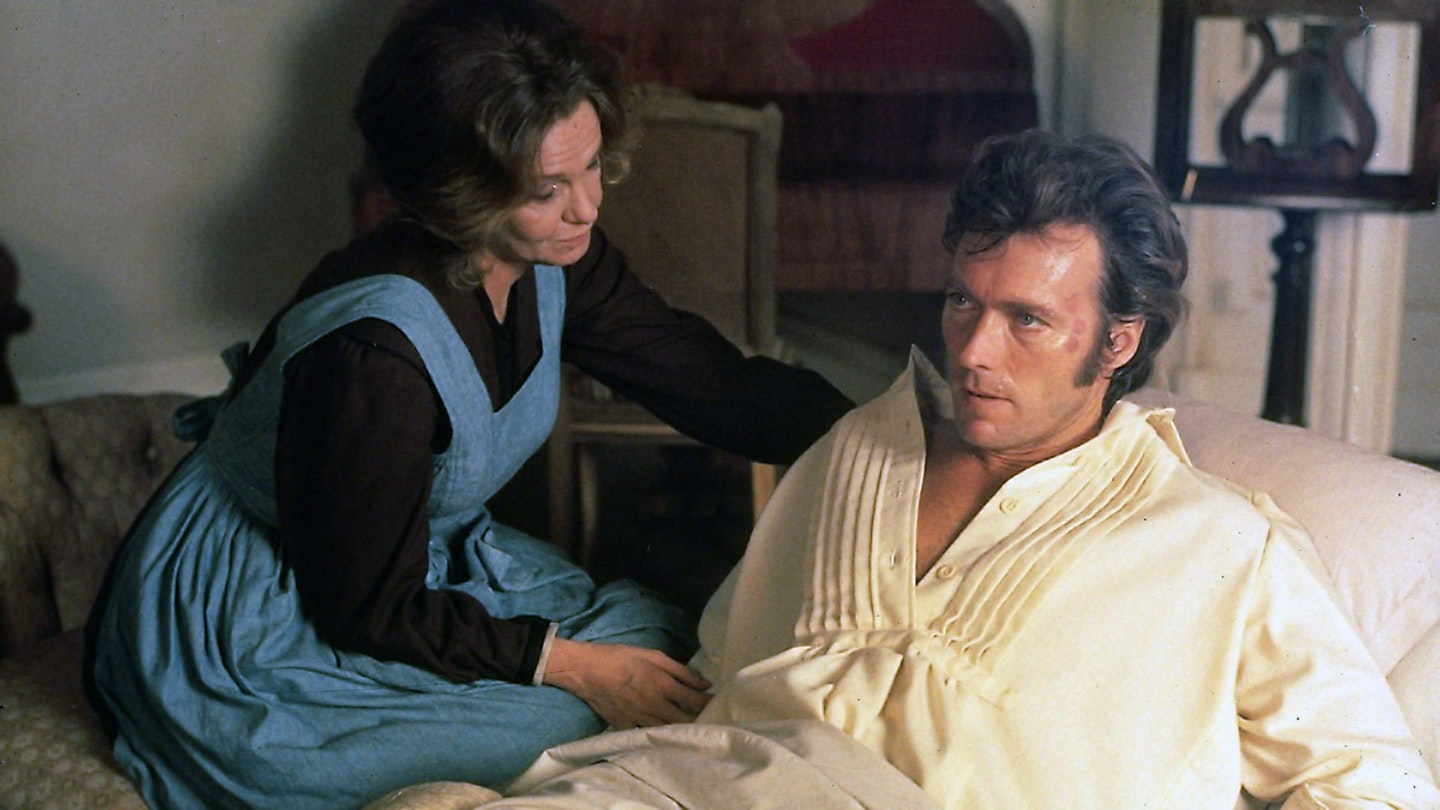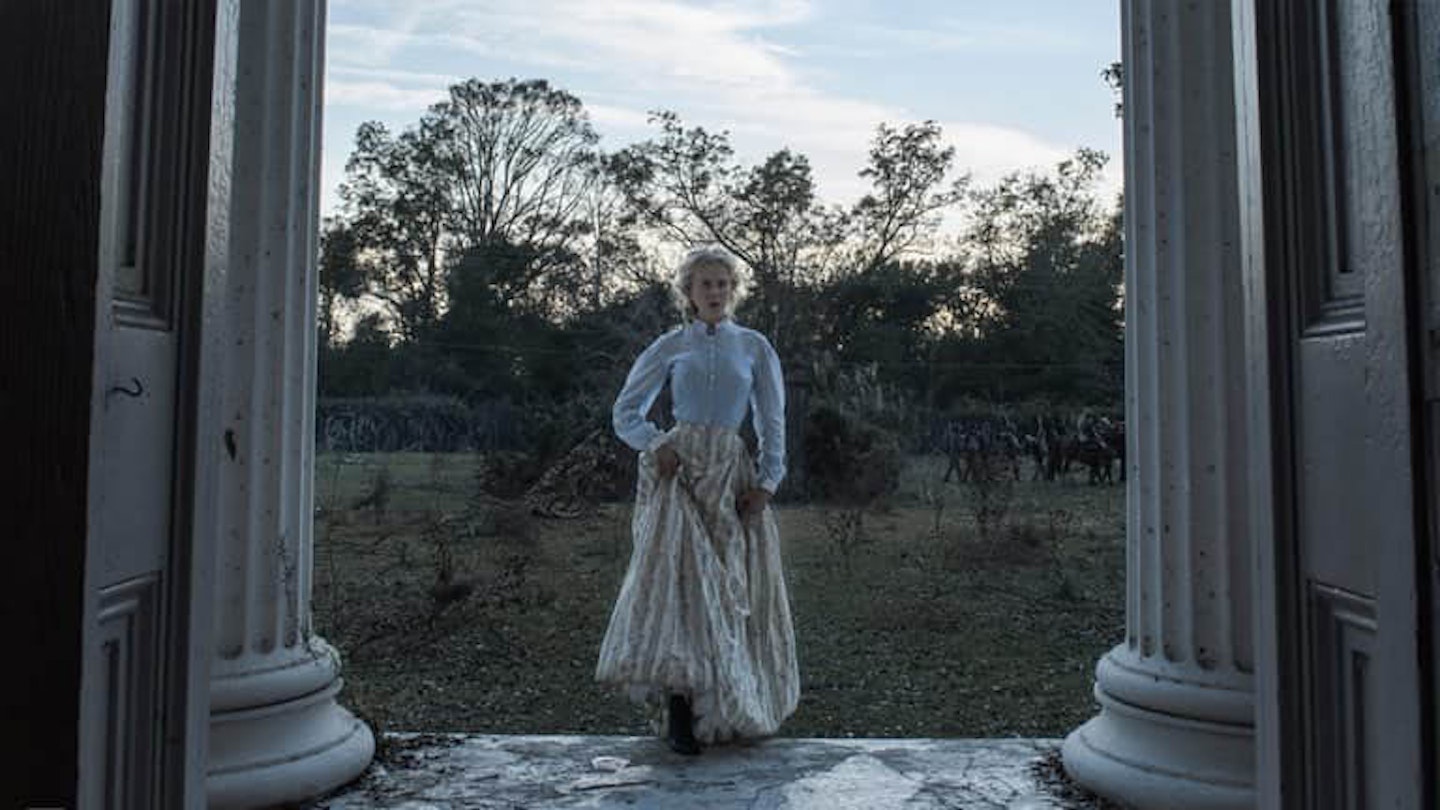Possibly the oddest of all Clint Eastwood’s westerns in that,despite its Civil War setting, it has more in keeping with Tennessee William’s sweaty Gothic melodramas, with an injection of Freudian paranoia, than the stolid Old West of John Ford. As directed with Don Siegel’s ‘70s-type knack for reworking genre staples with an austere, edgy unpredictable style.
Eastwood has rarely played such an ambiguous loner, before or since, nothing about this man is reliable as he works his subtle games on this love-struck female world, run with icy restraint by the great Geraldine Page. She can smell trouble in the air and wants rid of this man, and the film takes the first of its u-turns away from a standard anti-war stance of immediate problems overcoming political conflict. That is not the point, the war is only a backdrop, here it is about the destructive powers of sexual energy and, through it, the real civil war that exists between the sexes.
Eastwood’s escape attempts are spoiled and the harmony sours, as various green-eyed minxes try to keep him put and keep their rivals at bay. A switch from male dominance into female empowerment; this manipulative, cruel soldier is transformed into a victim of his own creating.
Siegel, however, is far from finished, taking the film to the vestiges of horror. When she sees her frail school plunge into a kind of testosterone-kicked dementia, takes drastic and unforgettable action. With seething Freudian undercurrents, they elect to amputate Dirty Harry’s injured leg — a castration metaphor powerful enough to send men retching with its preternaturally calm female attendees, brandy anaesthetic and rusty hacksaw. It’s enough to spin this taut character piece into the realms of the Grand Guignol, and make this one of Eastwood’s least inspected but most daring films.



